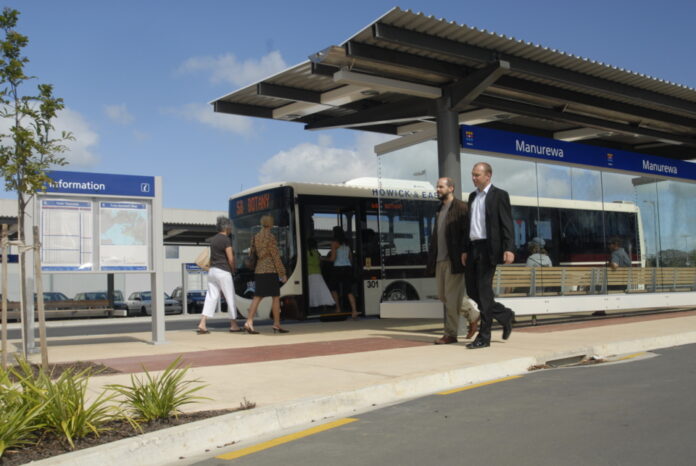Source: Auckland Council
Manurewa-Papakura residents will benefit from a boost in investment in bus services, cycling and walking, as well as tree planting, if Auckland Council’s proposed Climate Action Package is supported by councillors as part of this year’s Annual Budget.
Three new frequent bus routes, service upgrades for most existing bus routes, several kilometres of safe cycle paths and walking improvements are all planned for the area under the package, which will also fund the planting of more native trees.
Mayor Goff says the investment is overdue for the area and will help reduce carbon emissions and create greener, healthier neighbourhoods.
“If we’re going to meet our goal to reduce carbon emissions, we need to provide more frequent and accessible public transport, as well as safe cycling and walking facilities, so Aucklanders aren’t forced to rely on their cars as the only option to get around,” he says.
“But for these services to provide a realistic alternative to driving, they need to be fast, safe and convenient. That’s why the proposed Climate Action Package includes a boost of more than $600 million to deliver new and frequent bus services across Auckland. This will see more than 1 million Aucklanders living within 500m of an improved bus route. It will also provide for 79 new low-emission electric or hydrogen buses, and there will be increased funding to deliver up to 35km of walking connectivity improvements, more safe cycling infrastructure, and increased urban ngāhere.”
For Manurewa-Papakura, the proposed bus improvements include a completely new frequent route servicing Manurewa, Mahia Road, Clendon, the Puhinui Interchange, Otara and Highbrook. Upgrades will also be carried out to provide frequent services on two existing (currently non-frequent) routes (the 361 servicing Manurewa, Weymouth Road, Clendon, Manurewa Marae, Super Clinic, Manukau, Papatoetoe East and Ōtara North; and the 376 via Auranga, Drury and Papakura). Most other bus routes in the area will also receive upgrades to improve service levels.
Approximately 5km of safe cycle facilities will be delivered to connect Homai, Weymouth, Manurewa and Wattle Downs and improvements to make streets safer for pedestrians will also be carried in Homai West and Manurewa South.
Manurewa-Papakura Councillor Angela Dalton says the investment in the Climate Action Package will help reduce carbon emissions, improve access to public transport, and beautify Auckland’s neighbourhoods.
“Encouraging people to shift to public transport rather than driving is one of the most effective ways we have of reducing transport emissions, which make up more than 40 per cent of our city’s emissions profile,” she says.
“The Climate Action Package will fund substantial upgrades to bus services in Manurewa-Papakura, including new frequent routes, which will make it easier and faster to get around the city by public transport.”
The Climate Action Package will also enable council to plant almost 15,000 mature native trees across Auckland, focused on areas such as Manurewa-Papakura that currently lack tree canopy coverage, Mayor Goff explains.
“This will help tackle climate change and make neighbourhoods more pleasant and beautiful, while addressing a long-standing inequality in which many lower-income parts of the city have not enjoyed the benefits that tree canopy provides.”
The Climate Action Package will be funded by a Climate Action Targeted Rate of around $1.12 per week for ratepayers with a median-value residential property—now worth over $ 1 million—as well as co-funding from government and fares from increased public transport patronage.
“That’s a small weekly sum to pay, but it will enable a big investment in our city to protect future generations and help avoid a climate disaster,” Mayor Goff says.
Consultation on Auckland Council’s Annual Budget, including the Climate Action Targeted Rate, is open from 28 February to 28 March. Visit akhaveyoursay.nz/budget to find out more and have your say.



